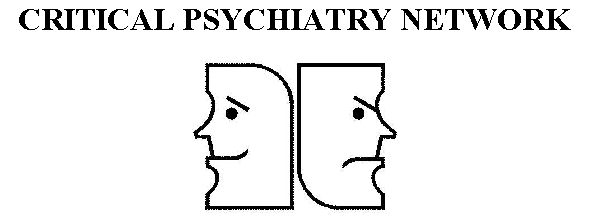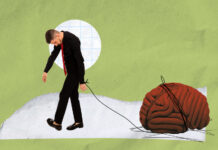Founding member of the Critical Psychiatry Network, psychiatrist Duncan B. Double, reviews the past 20 years of the Critical Psychiatry Network in an editorial published in the British Journal of Psychiatry. Double, a consultant psychiatrist and honorary senior lecturer in the Norfolk and Suffolk NHS Foundation Trust, defines critical psychiatry, delineates its different strands, reviews its implications, and juxtaposes differences within the movement.
“Critical psychiatry,” writes Double, “applies the patient-centered method and adopts the biopsychosocial model, although not in the eclectic, atheoretical way in which it tends to be used in modern psychiatry.”
 The Critical Psychiatry Network (CPN) held its first meeting in 1999 out of concern for the increased risk of coercion within the Mental Health Act in the UK. The group evolved and decided to take on a different shape than so-called “anti-psychiatry” movement, standing apart from the biomedical reductionists and shifting away from the exclusionists who deny the existence of mental disorders.
The Critical Psychiatry Network (CPN) held its first meeting in 1999 out of concern for the increased risk of coercion within the Mental Health Act in the UK. The group evolved and decided to take on a different shape than so-called “anti-psychiatry” movement, standing apart from the biomedical reductionists and shifting away from the exclusionists who deny the existence of mental disorders.
Double roots the difference between mainstream psychiatry and critical psychiatry in the different theories that practitioners use to conceptualize mental health difficulties. Critical psychiatry declares, “functional mental illness should not be reduced to brain disease,” but instead approaches mental health with a biopsychosocial lens which integrates “cultural, social, and psychological considerations as well as biological factors.”
While Double agrees that the brain does indeed enable the mind, he underscores the fact that “no definite biomarkers have been linked to functional mental illness and inconsistencies and cofounders plague research studies.”
Key members in CPN are recognized in Duncan’s editorial, though not all could be included, as contributors to the evolution of the movement. Sami Timimi, a child and adolescent psychiatrist, is acknowledged for speaking to his experience of the field becoming increasingly biologized, through what he described as “indoctrination,” or the feeling that “believing that mental illness is a brain disease is more like a faith” as opposed to scientifically situated.
In addition, critical psychiatry takes on issues of race and culture in psychiatry, as seen, for instance, in the work of CPN member Suman Fernando. Citing Fernando’s work, Double writes:
“Low- and middle-income countries need to develop locally relevant approaches rather than follow the biomedical methods of high-income countries, thereby acknowledging how culturally embedded mental health problems are in the social, economic, and political conditions of countries.”
Finally, critical psychiatry is “prepared to engage with the evidence about psychiatric treatment,” clearly differentiating from the case for “the myth of mental illness,” but towards “the myth of a chemical cure.”
While CPN members are united by the common goal of seeking alternatives to biomedical psychiatry, Double identifies three points of divergence among critical psychiatrists. They center on the following questions:
- Should psychiatry be seen as a medical discipline?
- Should the Mental Health Act be abolished?
- Is it suitable to see mental disorder as illness and disease?
Double reviews both the diagnostic and treatment implications of the critical psychiatry position. When it comes to diagnosis, CPN members pay less attention to seeking a diagnosis and more attention to focusing “on understanding the person and why they have presented with the problems they have in the context of their life situation.”
Taking a critical psychiatry approach to treatment involves taking a rights-based approach, attempting to minimize the use of coercion, and acknowledging the uncertainty of the available evidence of the psychotropic medications prescribed and the risk of discontinuation problems.
Ultimately, Double writes, “the emphasis is on helping people improve their social situation and to be as independent as they want to be.”
Double concludes:
“Even after 20 years, the CPN seems marginal to mainstream psychiatry and seeks more recognition of the validity of its position…Further debate on taking psychiatry beyond the current dominant paradigm is required.”
**
Within the article, Double references ‘Mad in America’ as a supportive resource that seeks alternatives to biomedical psychiatry. To hear more on being a critical psychiatrist, see MIA Radio’s interview with Double (https://www.madinamerica.com/2018/03/dr-duncan-double-critical-psychiatrist/) from last year, where he discusses his experiences working in a bio-medical oriented profession.
****
Double, D. B. (2019) Twenty years of the critical psychiatry network. British Journal of Psychiatry, 214(61-61). doi: 10.1192/bjp.2018.181 (Link)















i support critical psychiatry….
anti-psychiatry is too extreme…
we need to know the causes of mental suffering…
i like LIFESTYLE MEDICINE….
Report comment
Those 3 points of divergence might give some indication about how far or how close your Critical Shrink is to your conventionally Bio-Medical Shrink. The only one I feel strongly about is bullet number two. Should the Mental Health Act be abolished? This point of divergence, I would have to answer in the affirmative.
I think this leads to a similar question for people in the Antipsychiatry Movement. What points of divergence might they entertain? Some say that psychiatry should be abolished. Others are more intent on ending human rights violations and focus on ending force–the thing that was excused by enacting the Mental Health Act. I don’t think we have any dispute about “mental illness” being a myth, and de-licensing trained medical doctors does not in itself end involuntary harmful violence being inflicted on innocent people in the name of “mental health”.
Report comment
Great point Frank.
Report comment
Removed for moderation.
Report comment
Now, I really wonder why there is a double post of MadinAmerica on my facebook news-feed about the work of Mr. Double and the CPN’s double decades of hard work while this article has double to nothing to reveil about Double’s 20 years of hard work ?
Mr. Jeff Rubbin (from Insult to Respect – http://www.frominsultstorespect.com/) has probably done double the work of Double and does not have a double vision when it concerns the DSM which he wants to transform into the CSM (the Classification and Statistical Manual of Mental Health Concerns) – CSM for short.
[ http://www.frominsultstorespect.com/2017/10/10/mental-disorder-or-mental-health-concern/ ]
So I was doubly disappointed when this article stopped after just a few paragraphs all the while I was getting ready to not read double but at least 10-times as much information about the CPN ! This article needs CPR asap !
friendly greetings from
Alain Bos ([email protected])
Report comment
(it’s [email protected] btw – that’s double Dutch ASCII 😉 )
Report comment
In as much as, “no definite biomarkers have been linked to functional mental illness and inconsistencies and cofounders plague research studies,” is true. Definite iatrogenic etiologies of the two “most serious mental illnesses,” “bipolar” and “schizophrenia,” have been identified. The ADHD drugs and antidepressants create the “bipolar” symptoms. And the antipsychotics/neuroleptics create both the negative and positive symptoms of “schizophrenia.” The negative symptoms are created via neuroleptic induced deficit syndrome, and the positive symptoms are created via antipsychotic and/or antidepressant induced anticholinergic toxidrome.
“Should psychiatry be seen as a medical discipline?” Not if they can’t “first and foremost do no harm.” And given the reality the psychiatrists are in the midst of another psychiatric/medical holocaust, I’d say it’s quite obvious psychiatrists are absolutely incapable of “first and foremost do not harm.”
https://www.naturalnews.com/049860_psych_drugs_medical_holocaust_Big_Pharma.html
https://www.youtube.com/watch?v=8RQjfu_4Ag4
Not to mention, the primary actual societal function of both the psychologists and psychiatrists, both historically and today, is covering up child abuse. And profiteering off of covering up child abuse is illegal, thus should not be considered a “medical” specialty.
https://www.indybay.org/newsitems/2019/01/23/18820633.php?fbclid=IwAR2-cgZPcEvbz7yFqMuUwneIuaqGleGiOzackY4N2sPeVXolwmEga5iKxdo
https://www.madinamerica.com/2016/04/heal-for-life/
And the current DSM5, in addition to all prior DSMs, is a child abuse covering up system, by design.
https://www.psychologytoday.com/us/blog/your-child-does-not-have-bipolar-disorder/201402/dsm-5-and-child-neglect-and-abuse-1
“Should the Mental Health Act be abolished?” Absolutely it should be. It makes no sense for anyone to ever be given the right to force drug other people with drug classes that are medically known to create the symptoms of the DSM disorders, which is what the current psychiatric drug classes do.
Is it suitable to see mental disorder as illness and disease? Since we’ve found the iatrogenic etiologies of the two “most serious” DSM disorders, and it is supposedly “the sacred symbol of psychiatry” that gives psychiatry its so called legitimacy as a medical specialty. It’s time the doctors stop creating iatrogenic illnesses, which are misdiagnosed and stigmatized as “mental disorders,” in people with the psychiatric drugs.
Report comment
I bet at least 90% of all psychiatrized folk would show marked improvement if taken off all their drugs. Most of us weren’t that out of it till the quacks got hold of us.
Report comment
I agree totally
Report comment
So do I. So now we see how 20 years of critical psychiatry has deflected the attention and energy of those of us who want to stop the harm and want healing approaches mainstreamed. And we are labelled anti psychiatry as if we are bad. That’s reverse blame.
Put down the tennis racket and exit the court. Let’s play ball with those who genuinely want to heal.
Report comment
iatrogenic etiologies mostly refer to real cel-deformations
Report comment